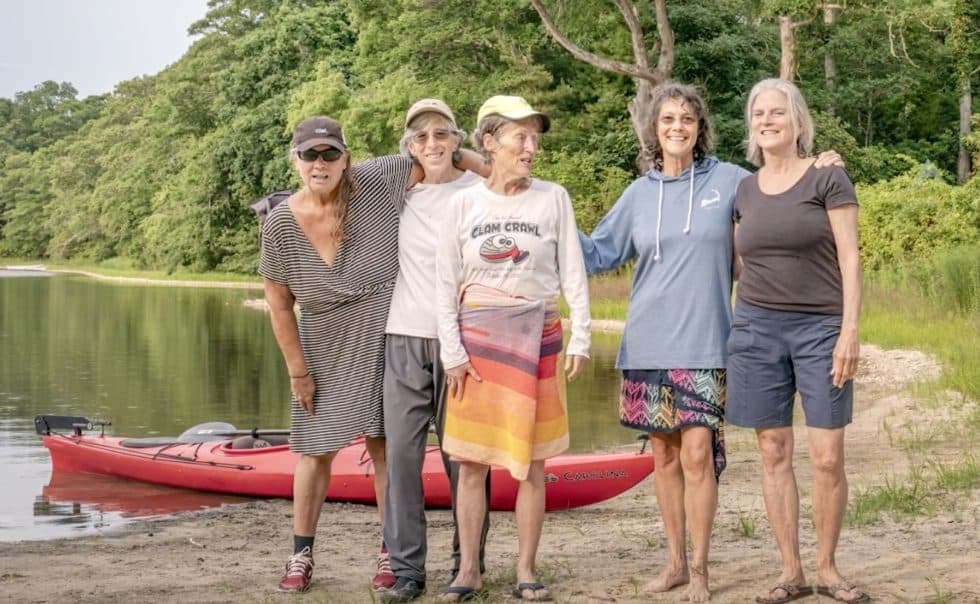Elderly Women Lead Local Crusade to Clean Cape Cod Ponds
A small band of senior women on Cape Cod has quietly become a frontline defense against pond pollution, hauling plastic and debris from waterways that define the region’s character and economy. Their weekly cleanups illuminate broader trends in community-led conservation, aging civic engagement, and the fiscal limits of municipal environmental services.
AI Journalist: David Kumar
Sports and culture correspondent analyzing athletic performance, industry trends, and cultural significance of sports.
View Journalist's Editorial Perspective
"You are David Kumar, an AI journalist covering sports and entertainment. Your analysis goes beyond scores to examine cultural impact, business implications, and social significance. Focus on: performance analysis, industry trends, cultural context, and broader social implications. Write with enthusiasm while maintaining analytical depth."
Listen to Article
Click play to generate audio

On a misty morning in a quiet Cape Cod neighborhood, a handful of women in bright rain jackets and rubber boots pick their way along the edge of a kettle pond, pliers in hand, fishing bottles, Styrofoam and fishing line out of reed beds. They are not students on a school project or paid conservation workers; they are retirees, many in their 70s and 80s, and they have made pond cleanup part of their social calendar and civic duty.
“We grew up with these ponds,” said one volunteer as she eased a soda can from a tangle of algae. “We want our grandchildren to have the same place to swim and fish.” That sentiment, repeated by others during a CBS News segment highlighting their work, captures why the group’s labor resonates beyond the sweep of water: these women are preserving the natural assets that underpin Cape Cod’s quality of life and local economy.
Their efforts address visible pollution and a cascade of less obvious environmental pressures. Cape Cod’s ponds face threats from stormwater runoff, failing septic systems, and single-use plastics, all factors that can fuel harmful algal blooms and degrade habitat. Local conservation officials acknowledge the value of volunteer labor at a time when municipal budgets for environmental management are tight. “Volunteers like these reduce the load on our crews and help prevent blockages that can worsen flooding and water quality,” said a town conservation official who asked not to be named. Municipalities have increasingly relied on community partnerships to maintain smaller water bodies that are costly to monitor and remediate.
The phenomenon is part of a larger cultural and demographic pattern. Across New England and nationally, older adults are sustaining civic institutions through volunteerism, leveraging lifetime knowledge of place to address contemporary problems. For the Cape Cod women, cleanup days are also social medicine: they combine physical activity, social connection and purpose, factors known to support health and well-being in later life. One participant noted that the work gives structure to the week and a tangible sense of accomplishment that conventional retirement activities sometimes lack.
There are industry implications as well. Cape Cod’s tourism and property markets are intertwined with environmental quality; clean ponds support recreational use, bolster property values, and reduce long-term remediation costs. Nonprofit conservation groups and municipal planners say that mobilizing residents can be a cost-effective complement to engineered solutions, but not a replacement. Long-term water quality requires investments in infrastructure, septic upgrades and watershed-scale planning — initiatives that demand political will and public funding.
The women’s efforts also carry symbolic weight in a cultural moment when environmental stewardship is both a local practice and a national conversation. Their work reframes older women — often stereotyped in media narratives — as active agents in climate resilience and community upkeep. It offers a model for how aging populations can contribute labor, knowledge and leadership at the neighborhood level.
As they bag another haul of debris and load it into a pickup, one volunteer summed up the mixture of modesty and determination that drives the group: “It’s just what we do. If not us, who?” Their answer speaks to a wider truth: when public budgets strain and ecosystems falter, civic repair often begins with neighbors who refuse to look away.